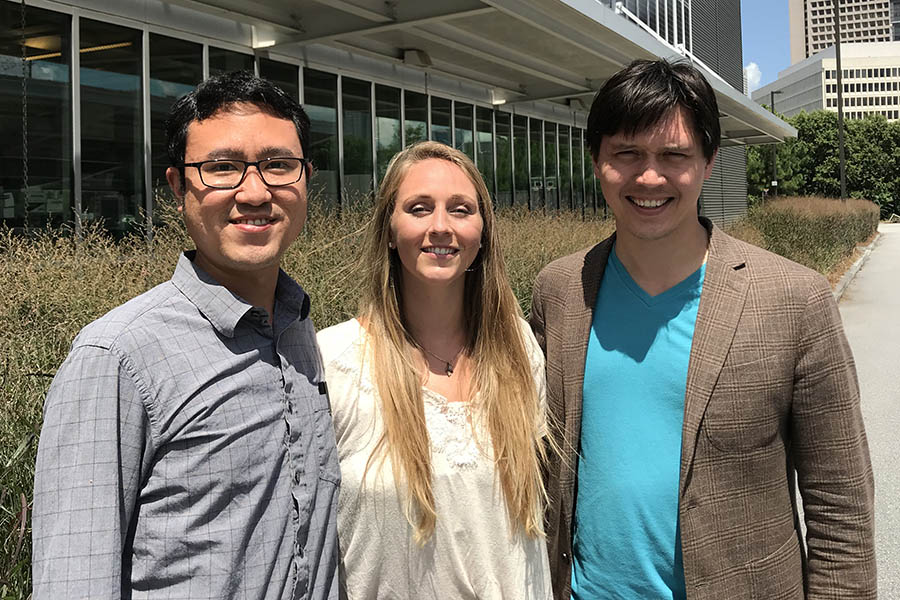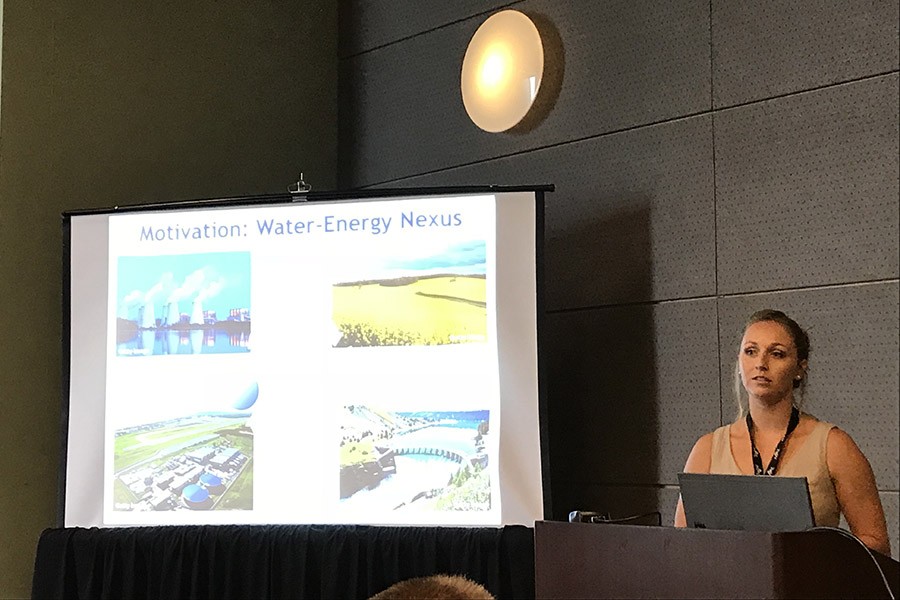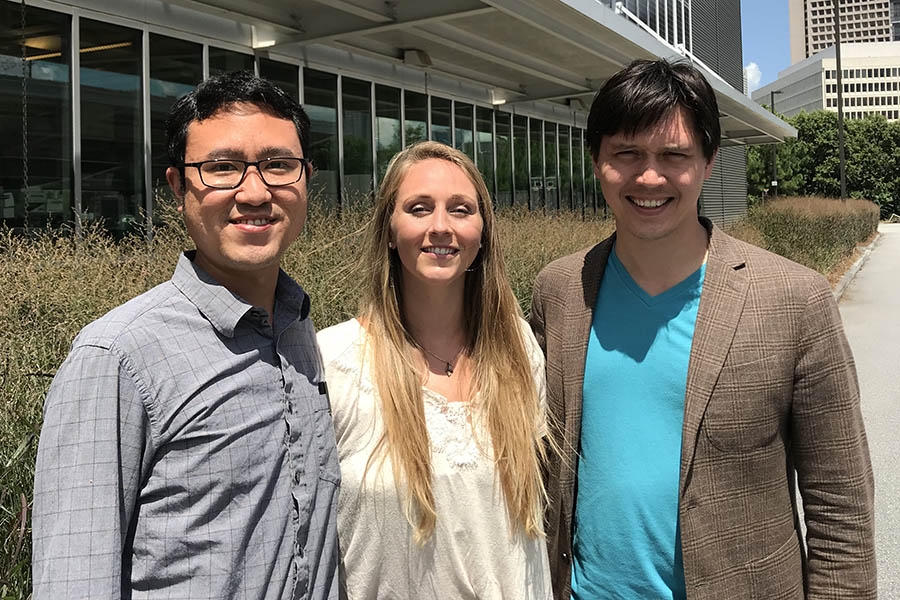 Environmental engineering senior Megan Haynes, center, with her mechanical engineering collaborators Andrey Gunawan, left, and Shannon Yee. Haynes has been doing research on desalination that recently won her second place in an American Society of Mechanical Engineers paper competition. (Photo Courtesy: Megan Haynes) |
Environmental engineering senior Megan Haynes believes in the power of relationships.
Maybe that explains why a challenge from her thermodynamics instructor in the fall has turned into a fruitful partnership with a mechanical engineering mentor and led her to reconsider where the future may lead.
It started right around the time Andrey Gunawan returned the first midterm exams to his mechanical engineering thermodynamics class. Haynes was in that class, and her work impressed him. He challenged her — “challenged” is how they both described it — to pursue an undergraduate research project and submit a paper to the American Society of Mechanical Engineers student competition.
“I didn’t really think much of it at the time, because it was a mechanical engineering competition, and I was in no way qualified,” Haynes said, “but I thought it was a really great opportunity, and I always like challenging myself with new things to do, so I went for it.”
Haynes received a President’s Undergraduate Research Award and began working with Gunawan and Shannon Yee, an assistant professor in the George W. Woodruff School of Mechanical Engineering, in Yee’s Scalable Thermal Energy Engineering Lab.
|
Gunawan said it turned out that his challenge to Haynes ended up as a challenge for him, too.
“Her research project, and the subject of her research proposal, is brand new to me and Shannon,” he said. “It involves water desalination — a topic about which I know very little. Happily, with Megan’s help, I am getting to learn a bit more about it.”
“Andrey really branched out when he challenged me to try research,” Haynes said. “He has since been an incredible mentor, and I would never have been able to do any of this without his help or Professor Shannon Yee and the STEEL lab.”
Haynes’ paper determined the economic viability of a combination water desalination and solar power plant, comparing different designs. Her idea was to collect concentrated solar power to generate energy and use the waste heat from that process to fuel the desalination process.
Her work had merit: It won second place in the paper competition at the ASME Power & Energy Conference in late June.
 Megan Haynes presents her paper, "Techno-Economic Comparison between Conventional and Innovative Combined Solar Thermal Power and Desalination Methods for Cogeneration," at the 2018 American Society of Mechanical Engineers Power & Energy Conference. Haynes is an environmental engineering undergraduate who has been working with mechanical engineers Andrey Gunawan and Shannon Yee. Her work won second place among all the student researchers at the conference. (Photo: Andrey Gunawan) |
“The fact that I was even considered for this competition made me feel honored, because what these researchers are doing with their lives is pretty incredible,” Haynes said. “When I found out that I was awarded second place among such incredibly talented students, I was definitely at a loss for words. Actually, I still don’t think I have been able to fully process it.”
Haynes, who finishes her degree in August, said she’s always wanted a career that will “make a positive difference in the world. That’s why we’re all Yellow Jackets, right?” The last year has left her seriously considering a Ph.D., dedicating her career to helping people through research and teaching others.
“I got to really experience an interdisciplinary role for the first time, and I really enjoyed it,” she said. “Working with mechanical engineers helped me to think about things from a much different perspective than how I think from the standpoint of solely an environmental engineer.”
It also cemented for her the power of relationships.
“I am passionate about a lot of things — engineering, organic chemistry and biochemistry, human health, and even art, but I am especially passionate about relationships,” Haynes said. “Networking and forming relationships with people who have different experiences than you help grow you as an intellectual and an engineer, and I think forming relationships and patterns between different disciplines help people discover solutions to problems that could have even originally been considered unsolvable.”

